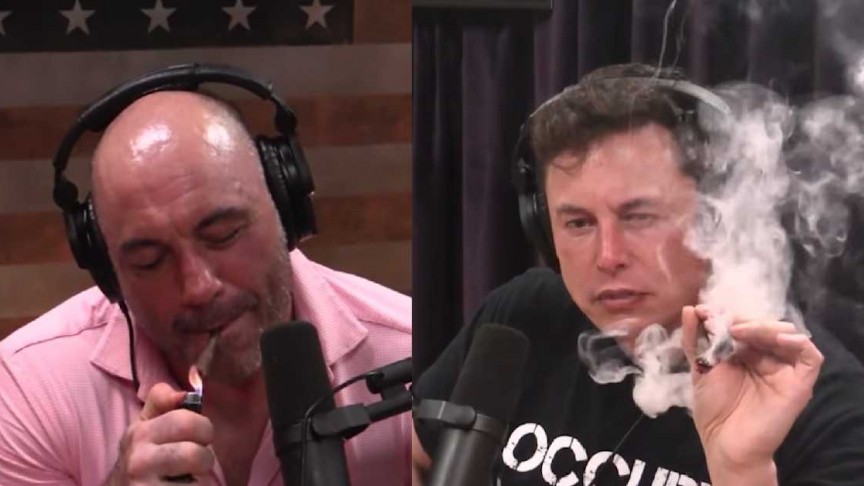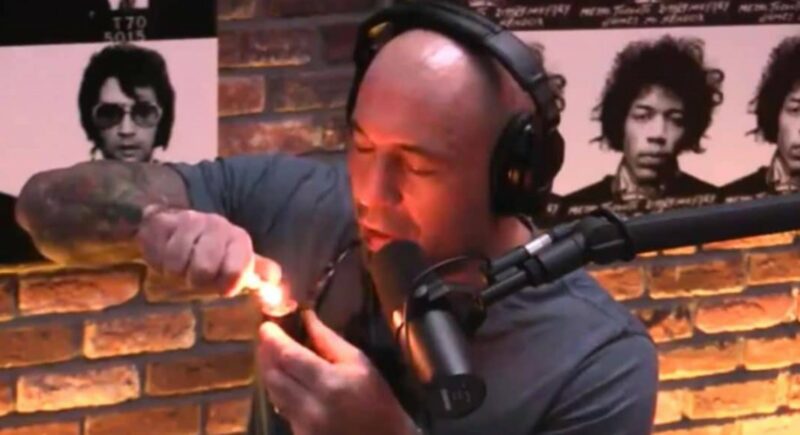Joe Rogan, a renowned comedian, podcast host, and UFC commentator, has amassed a substantial following over the years. There are many public figures we’ve talked about earlier like Greta Thurnberg.
However, like any public figure, he also faces criticism and has attracted a fair share of detractors. In this article, we delve into the reasons why some individuals harbor negative sentiments toward Joe Rogan.
13 Reasons why people hate Joe Rogan
By exploring 13 distinct factors, we aim to shed light on the different perspectives that contribute to the controversy surrounding him.
Political Bias and Controversial Guests
One of the primary reasons for discontent among specific individuals is Rogan’s choice of guests and perceived political bias. Critics argue that he tends to provide a platform for controversial figures, including those associated with the alt-right, without challenging their views adequately. This has led to accusations of normalizing extreme ideologies and contributing to the spread of misinformation.
Disagreements on Social Issues
Joe Rogan’s candid discussions on social issues have garnered both praise and criticism. Some detractors claim he holds regressive views on gender, race, and LGBTQ+ rights. These critics argue that Rogan’s platform amplifies voices that perpetuate harmful stereotypes, thereby hindering progress in social justice movements.
Handling of COVID-19 Discussions
Throughout the COVID-19 pandemic, Joe Rogan’s remarks and conversations surrounding the virus have generated controversy. Some individuals believe that his platform provided a platform for misinformation, contributing to public confusion and potentially endangering lives. Critics argue that his lack of scientific expertise hinders responsible discourse on such critical matters.
Lack of Fact-Checking and Critical Analysis
Another source of dissatisfaction among certain individuals is the perceived lack of fact-checking and critical analysis on Rogan’s podcast. Detractors claim that his laissez-faire approach to challenging guests or verifying claims perpetuates misinformation and pseudoscience, ultimately eroding trust in evidence-based information.
Allegations of Transphobia
Joe Rogan’s comments on transgender issues have been widely debated and criticized. Critics argue that his jokes and remarks regarding transgender individuals display insensitivity and perpetuate harmful stereotypes. Such allegations have led to calls for accountability and have fueled animosity toward him.
Influence on Public Opinion
Given Joe Rogan’s massive audience and influence, some detractors argue that his platform holds significant sway over public opinion. Critics claim that his lack of journalistic training or rigorous fact-checking may contribute to spreading misinformation, ultimately shaping people’s beliefs and attitudes on various subjects.
Controversial Statements and Jokes
Rogan’s career as a stand-up comedian has been characterized by provocative statements and humor that some find offensive. Detractors argue that his jokes often cross the line, perpetuating harmful stereotypes and creating an environment that normalizes prejudice and discrimination.
Perceived Lack of Accountability
Critics assert that Joe Rogan does not take sufficient responsibility for the impact of his words and actions. They argue that his refusal to engage in meaningful self-reflection or apologize for controversial remarks further exacerbates the divide between his supporters and those who find his behavior objectionable.
Influence on Alternative Medicine and Health Practices
Rogan’s endorsement of alternative medicine and unconventional health practices has been met with skepticism by some individuals. Critics argue that promoting unverified treatments and pseudoscience can mislead vulnerable individuals and undermine trust in evidence-based medicine.
Controversial Stances on Drug Use
Joe Rogan’s openness about his personal experiences with drug use has both attracted admirers and invited criticism. Detractors argue that his discussions on drugs may glamorize and normalize substance abuse, potentially sending the wrong message to his audience, especially about marijuana.
Lack of Diversity in Guest Selection
Some individuals criticize Joe Rogan for what they perceive as a lack of diversity in his choice of guests. Critics argue that his podcast predominantly features guests who are white, male, and from similar backgrounds, which limits the perspectives and voices represented on his platform. This criticism has led to accusations of a failure to promote inclusivity and equality in the podcasting industry.
Handling of Sensitive Topics
Joe Rogan’s approach to discussing sensitive topics has been a subject of controversy. Detractors claim that he often simplifies complex issues or fails to engage with nuance, leading to misinterpretation and potential harm. Critics argue that his willingness to entertain conspiracy theories and fringe ideas without thorough examination may contribute to a climate of misinformation and polarized discourse.
Lack of Transparency in Platform Dealings
In a pivotal moment for the podcasting world, Joe Rogan secured a multimillion-dollar contract with Spotify, marking a milestone in the industry and generating an unprecedented level of interest akin to major sporting events. However, the lack of transparency in the details of this agreement became a significant point of discussion.
The uncertainty intensified when a selection of episodes disappeared from other streaming platforms during the exclusive transition to Spotify. This selective move of content raised a myriad of questions among followers and the listener community, fostering an atmosphere of speculation and online discourse.
The backdrop of these events has sparked broader discussions on editorial autonomy, platform influence, and responsibility in the dissemination of digital content.
Conclusion
The reasons why some individuals harbor negative sentiments toward Joe Rogan are varied and complex. Critics point to concerns such as political bias, controversial guests, disagreements on social issues, handling of COVID-19 discussions, lack of fact-checking, allegations of transphobia, influence on public opinion, controversial statements, and jokes, perceived lack of accountability, influence on alternative medicine, controversial stances on drug use, lack of diversity in guest selection, and handling of sensitive topics.
It is important to note that while Joe Rogan’s podcast has undoubtedly played a significant role in shaping public discourse, the perspectives shared here represent a segment of the population and should not be considered universally held opinions.
Understanding and acknowledging these concerns can contribute to a more comprehensive and nuanced dialogue about media influence, responsible hosting, and the importance of critical thinking in an era where information spreads rapidly. Ultimately, the decision to support or criticize Joe Rogan rests with the individual, their values, and their interpretation of the various factors discussed.




